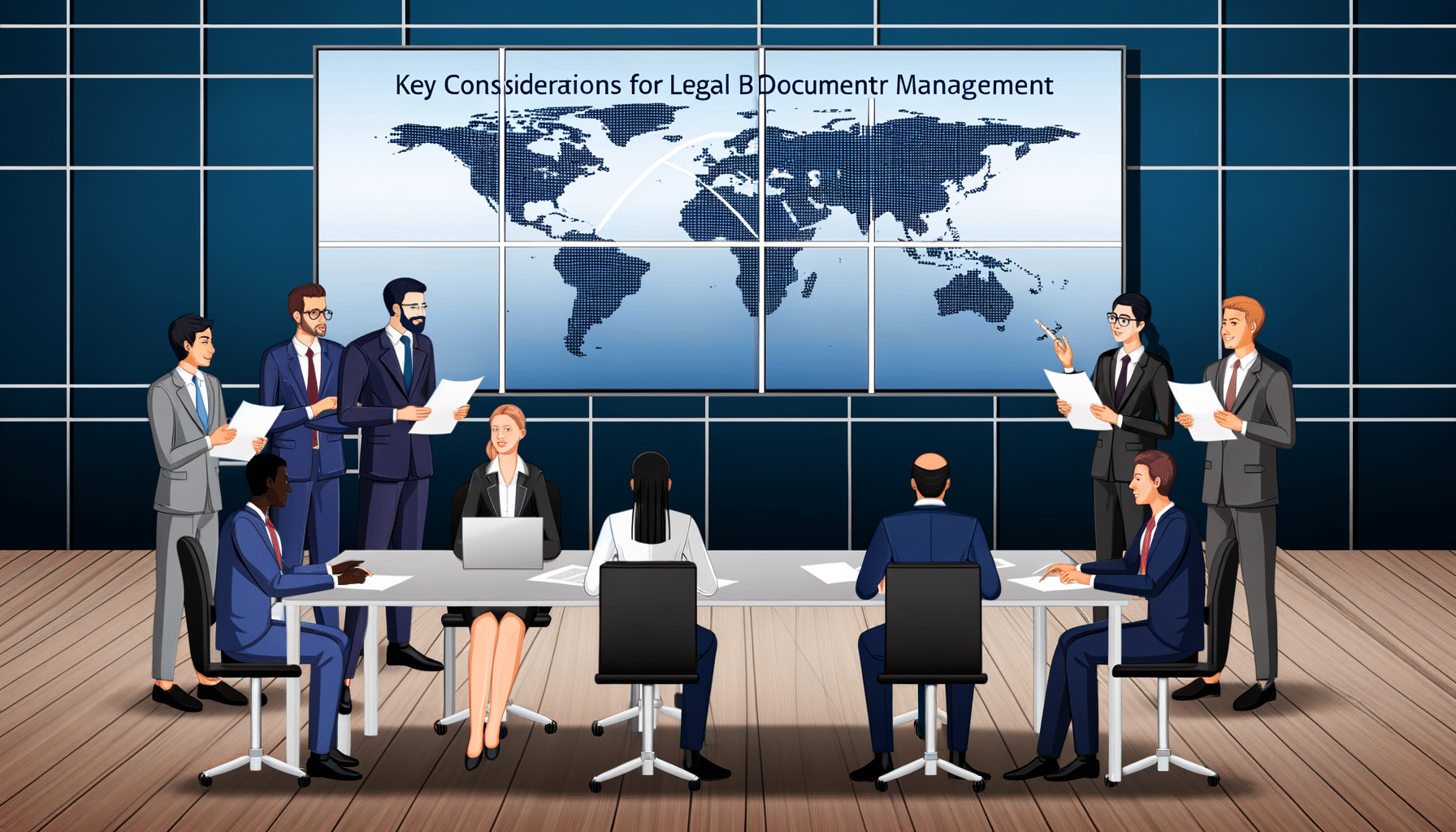- Global Legal Records
- August 23, 2024
Key Considerations for Cross-Border Legal Document Management

Introduction
Navigating the complexities of cross-border legal document management is a challenging endeavour for any organization. With today’s globalized business landscape, the amount of legal documentation that crosses international borders is ever-increasing. The challenge lies in managing these documents effectively while complying with the various regulations of different jurisdictions. As the founder of RecordsKeeper.AI, I’ve observed the significant role that technology, especially AI and Blockchain, can play in simplifying this complex process. Let me walk you through the key considerations for successfully managing cross-border documents and ensuring your organization remains compliant and secure.
Understanding Jurisdictional Differences
One of the first hurdles in cross-border legal document management is understanding the legal landscape of different jurisdictions. Each country has its own set of regulations governing the handling of legal documents, creating a maze of compliance requirements. In some cases, what is acceptable in one jurisdiction might be entirely unacceptable in another.
Steps to Address Jurisdictional Variations:
- Research local laws and regulations for every jurisdiction where your documents originate or are processed.
- Employ local legal experts or consultants who possess deep knowledge of the jurisdiction in question.
- Use AI tools to automate compliance checks and alerts when laws change.
Securing Cross-Border Documents
In an era where data breaches and hacking incidents are rampant, securing cross-border legal documents is non-negotiable. Sensitive legal records need robust protection to prevent unauthorized access and ensure data integrity.
Security Best Practices:
- Utilize secure data rooms with controlled access and track real-time activity to monitor any unauthorized attempts.
- Incorporate Blockchain technology to create tamper-proof, immutable records.
- Regularly update encryption protocols and employ multi-factor authentication.
Ensuring Document Integrity and Authenticity
The cross-border exchange of legal documents necessitates that every file maintains its integrity and authenticity from creation to destination. Blockchain technology can significantly aid in this regard by providing a decentralized ledger that guarantees records aren’t altered without proper authorization.
Methods to Maintain Integrity:
- Implement Blockchain solutions that ensure every document’s history is both transparent and immutable.
- Incorporate comprehensive audit logs to track document changes over time.
- Regularly audit your systems and workflows to identify and mitigate potential integrity risks.
Overcoming Language Barriers
Language differences can pose a significant challenge in cross-border legal document management. Misinterpretations or mistranslations can lead to compliance mishaps or legal disputes, creating unnecessary risks.
Strategies to Tackle Language Challenges:
- Use AI-powered translation tools that offer high accuracy and speed, ensuring clarity and understanding across languages.
- Hire multilingual legal professionals to review critical documents.
- Standardize documents using universally recognized legal terminologies wherever possible.
Automating Document Management
Automation is a transformative tool in the realm of cross-border document management. By automating repetitive tasks, organizations can significantly cut down on time and human error while enhancing productivity.
Benefits of Automation:
- Free up resources by automating document categorization and retrieval.
- Implement automatic policy management to enforce data retention and deletion policies consistently.
- Use AI-powered tools to generate compliance reports and alert you of any deficiencies.
Conclusion
Effectively managing cross-border legal documents involves embracing emerging technologies and understanding jurisdictional nuances. By integrating AI and Blockchain into your document management processes, you can achieve seamless compliance, fortified security, and efficient operations. I encourage you to leverage these strategies to transform record management from a tedious task into a strategic advantage. For more insights into how RecordsKeeper.AI can assist in overhauling your record management approach, feel free to reach out or follow me on this journey of innovation and entrepreneurship.
Toshendra Sharma is the visionary founder and CEO of RecordsKeeper.AI, spearheading the fusion of AI and blockchain to redefine enterprise record management. With a groundbreaking approach to solving complex business challenges, Toshendra combines deep expertise in blockchain and artificial intelligence with an acute understanding of enterprise compliance and security needs.
Related Posts

Best Practices for Maintaining Legal Case Files
Discover proven strategies for organizing and preserving legal case files effectively.
- August 5, 2024

How AI Helps in Contract Management for Legal Records
Learn how AI automates and improves contract management in legal records.
- June 13, 2023
Archives
- January 2025
- December 2024
- November 2024
- October 2024
- September 2024
- August 2024
- July 2024
- June 2024
- May 2024
- April 2024
- March 2024
- February 2024
- January 2024
- December 2023
- November 2023
- October 2023
- September 2023
- August 2023
- July 2023
- June 2023
- May 2023
- April 2023
- March 2023
- February 2023
- January 2023
- December 2022
- November 2022
- October 2022
- September 2022
Want to get more content like this?
Signup to directly get this type of content to your inbox!!
Latest Post
Document Control for Equipment Maintenance
- January 20, 2025
Managing Records for Multiple Clients
- January 19, 2025
Handling Conference Documentation
- January 18, 2025
Setting Up Department Record Reviews
- January 17, 2025





